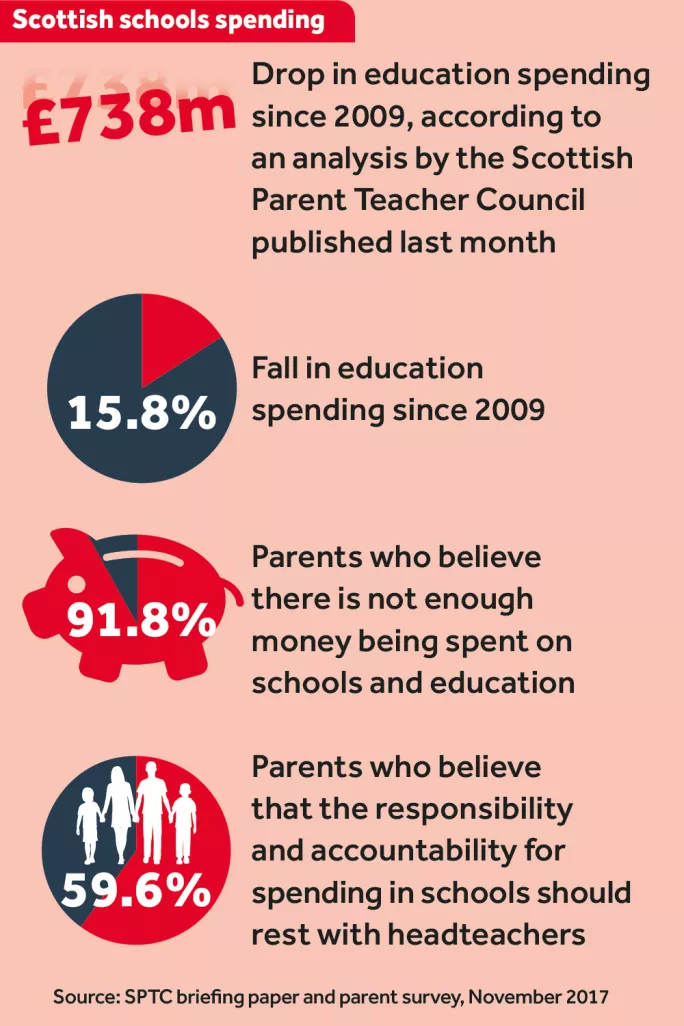‘Resources are not the biggest problem we face’

A Lack of resources is not the biggest problem facing Scottish education, MSPs have been told. Keir Bloomer, convener of the Royal Society of Edinburgh’s education committee, has argued that “governance issues” are a more significant factor - although some MSPs insist the message they are hearing from teachers is very different.
Meanwhile, another common narrative about Scottish education - that Curriculum for Excellence has been a failure - was also challenged at the Scottish Parliament’s Education and Skills Committee, with one expert saying that teachers retained “huge enthusiasm” for CfE, although he also feared that its success was in the balance.
Mr Bloomer, an education consultant and former council chief executive, told the committee: “Resources are not the biggest problem we are facing.”
The main barriers to progress in schools, he said, were “governance problems” such as “excessive bureaucracy”, as well as “inadequate policy implementation”.
Live Twitter backlash
One committee member, the Greens’ Ross Greer, tweeted during the meeting that Mr Bloomer’s view was “wildly out of line with what teachers and pupils are saying”, adding that teacher numbers had dropped by 4,000 in a decade “and it’s not down to governance”.
Labour education spokesman Iain Gray tweeted that he disagreed with Mr Bloomer, “and so do parents, teachers, headteachers, councils and other educationalists.”
Mark Priestley, an education professor at University of Stirling, also reacted on Twitter that, while resources were “clearly an issue”, governance was “definitely a large problem”.
Last month, new School Leaders Scotland president David Barnett warned in his inaugural speech that education had in many places been “relatively well protected” from local budget cuts, but was “now becoming a key area for such savings”.
However, at the meeting, Tracey Burns, senior analyst for the Organisation for Economic Cooperation and Development (OECD), said that no correlation had been established between education spending and outcomes, once a minimum threshold - which all OECD countries have passed - had been reached. She argued that it was how you spent the money, not how much you had, that was most important.
Dr Burns also said that a 2015 OECD report on CfE had painted a “very positive” picture of Scottish education overall.
Graham Donaldson, the former senior chief inspector of education who wrote the influential 2011 report Teaching Scotland’s Future, told the committee that he had met many teachers at recent events and found there was still “huge enthusiasm” about CfE - although he added an important caveat: “Overwhelmingly, the belief [in CfE] is still there, but the follow-up question is ‘Do you know what Curriculum for Excellence actually is?’”

From the responses he heard, it was clear that many teachers struggled to explain CfE.
Professor Donaldson, who was instrumental in the initial development of CfE, and who is now driving similar curricular reform in Wales, said that “over time, we have lost the narrative and we no longer know what Curriculum for Excellence’s fundamentals are”. The big picture had been forgotten, he feared, and now “we have a series of bits of curricula reform”.
Mr Bloomer, another architect of CfE, was similarly disappointed that in 2017, 15 years after its conception, “teachers lack clarity about what Curriculum for Excellence entails”.
Professor Donaldson said Scotland had suffered because it was one of the first countries to “think about the curriculum differently” - CfE has, broadly, attempted to shift the emphasis of education from teachers imparting knowledge to a more student-centred and skills-based approach. Professor Donaldson added: “We are at a watershed moment for Curriculum for Excellence.”
His warning echoed similar concerns from University of Dundee education expert Professor Keith Topping, after Scotland’s disappointing national results in the Programme for International Student Assessment (Pisa) last December. He said “I don’t think [CfE is] a lost cause, but the clock is ticking” and that “If you don’t get it right in the next five years, forget it.”
You need a Tes subscription to read this article
Subscribe now to read this article and get other subscriber-only content:
- Unlimited access to all Tes magazine content
- Exclusive subscriber-only stories
- Award-winning email newsletters
Already a subscriber? Log in
You need a subscription to read this article
Subscribe now to read this article and get other subscriber-only content, including:
- Unlimited access to all Tes magazine content
- Exclusive subscriber-only stories
- Award-winning email newsletters